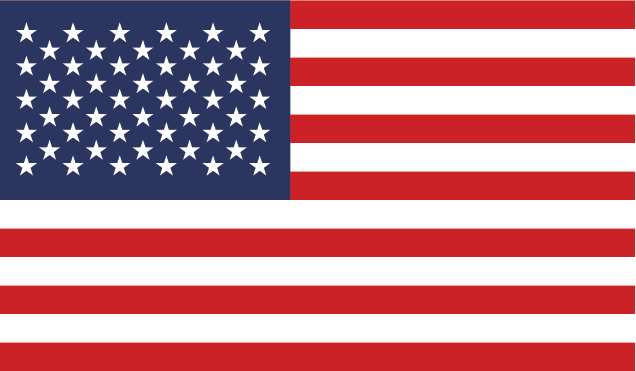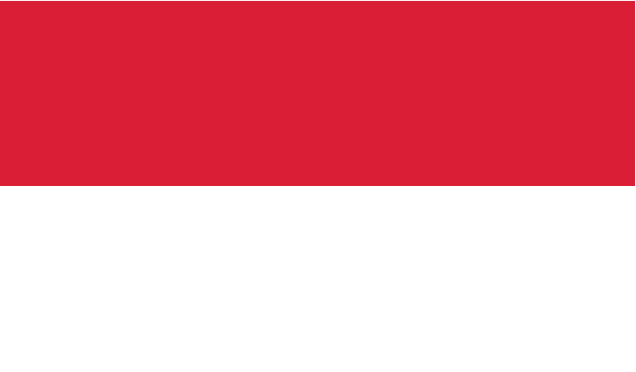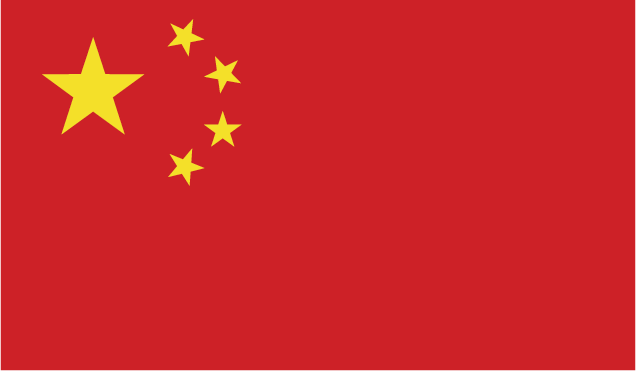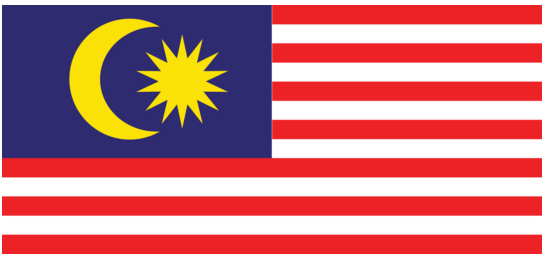The Ultimate Guide to K-Beauty Influencer Marketing in Indonesia
K-beauty influencer marketing in Indonesia
Unlocking Indonesia's Beauty Market: The Power of K-Beauty Influencer Marketing
In the electrifying and ever-evolving Indonesian beauty scene, K-beauty influencer marketing has surged to the forefront, becoming the go-to strategy for brands pushing cosmetic products, especially those boasting that coveted halal certification. This isn't just a trend; it's a full-blown phenomenon, fueled by a confluence of key factors.
The Rise of Halal-Certified K-Beauty: A Demand That Can't Be Ignored
Indonesia, with its vast Muslim population, is the epicenter of the halal beauty product boom. Indonesian trailblazers like Wardah Beauty have successfully carved out a niche by offering innovative, Halal-certified skincare solutions approved by the Indonesian Halal Association. This isn't just an Indonesian story; it's a global shift. Consumers worldwide are now more mindful of the ethical and religious dimensions of the products they use, and this trend is picking up pace globally 1.
K-Beauty: A Global Sensation Finds its Niche in Indonesia
Korean beauty, or K-beauty, is known across the globe for its groundbreaking skincare technologies, potent ingredients, and cutting-edge formulations. When these elements fuse with halal certification, the result is a powerful and sought-after product that ticks all the boxes of both effectiveness and ethical compliance. Halal-certified K-beauty is no one-trick pony, it caters to diverse skin types and needs, from intense hydration and that desirable radiant glow to anti-aging and soothing sensitive skin1.
Navigating the Indonesian Market: Where Consumer Behavior Meets Digital
The Indonesian market is characterized by a flourishing middle-class that has a HUGE impact on consumer purchasing habits. This demographic drives nearly half of the nation's total consumption, making them a core target for brands. Digital infrastructure and internet usage are also experiencing an exponential growth. With approximately 80% of Indonesian consumers having access to the internet, there's been a major shift toward online shopping as consumers heavily rely on digital platforms for their beauty needs2.
The Age of Influence: How to Connect With Consumers
In this digital-first era, influencer marketing is the rockstar strategy for showcasing K-beauty products. Influencers, particularly those embedded within Muslim-majority communities, play a pivotal role in promoting Halal-certified K-beauty. Their genuine recommendations, niche targeting, and user-generated content are incredibly powerful when it comes to establishing trust and boostings sales. This section sets the stage for our deep dive into how K-beauty influencer marketing works in Indonesia, shedding light on the market, consumer needs and strategies that deliver exceptional results1.
By understanding these core elements, brands can navigate the Indonesian market more efficiently, harnessing the power of influencer marketing to promote halal-certified K-beauty products and meeting the growing demand for ethical yet effective skincare solutions.
Navigating the Indonesian Market: A Deep Dive into Consumer Preferences
For K-beauty brands eyeing expansion, Indonesia presents a vibrant, albeit intricate, landscape. Success hinges on understanding the interplay of digital adoption, evolving consumer behaviors, and the potent influence of social media. Let's unpack this a bit, shall we?
The Digital Arena and Consumer Pulse
Indonesia's burgeoning urban middle class isn't just a statistic; they're the driving force behind nearly half of the nation's consumption. This influential segment, roughly 20.5% of the population, is setting trends, not just following them. The digital revolution has fundamentally reshaped how they interact with beauty products. With a staggering 80% of Indonesians online, e-commerce has become the go-to for skincare and beauty purchases. It's not just a trend; it's the new normal.
Social Media's Sway
TikTok, Instagram, and Facebook aren’t just platforms; they are the new town squares where Indonesian consumers discover and engage with brands. These aren't mere advertising channels; they've evolved into critical tools for building trust and driving sales. Visual storytelling, influencer endorsements, and community-centric approaches are proving to be winning strategies, as exemplified by brands like Wardah Beauty. The savvy influencers are highlighting the halal certifications, a key detail that deeply resonates with their audience and fosters authentic connections. It's not just about selling; it's about building trust.
The Halal Imperative: Meeting Consumer Values
In Indonesia, a predominantly Muslim nation, halal certification is paramount for beauty and skincare choices. Brands like Wardah Beauty have wisely tapped into this preference, offering a wide range of halal-certified options. These products not only adhere to strict Islamic guidelines but also deliver on efficacy and quality. The demand for halal K-beauty isn't just an Indonesian phenomenon; it's a global trend, underscoring consumers' growing awareness of ethical and religious considerations in their beauty routines.
Regional Nuances: Tailoring Your Approach
The Indonesian market isn’t a monolithic entity; it's a tapestry of different tiers, each with its unique consumer behaviors. Tier 2 and 3 cities showcase distinct purchasing patterns when compared to their tier 1 counterparts. Brands need to grasp these subtle differences to fine-tune their marketing strategies. Companies like Sociolla have successfully harnessed consumer data to anticipate needs and provide personalized solutions, whether that’s in bustling Jakarta or in the smaller, secondary cities. It's about local relevance, not just broad strokes.
Culture and Community: The Social Fabric
Cultural and social factors also wield considerable influence on consumer behavior in Indonesia. Research indicates that social and cultural elements, including the preference for community, and common ground, impact technology adoption and online shopping habits. For instance, a whopping 75% of Indonesians value the sense of community, way above the global average. This underscores the necessity of weaving community engagement and social validation into your marketing playbook.
Understanding these complexities of the Indonesian market is critical for any brand aspiring to make a meaningful impact. Leveraging digital platforms, harnessing the power of social media, and honoring the unique cultural insights of the nation, brands can design targeted influencer marketing strategies that not only resonate but also drive tangible results and sales.
The Power of Social Media in K-Beauty Influencer Marketing
In Indonesia's dynamic K-beauty scene, social media – think TikTok, Instagram, and Facebook – isn't just a marketing afterthought; it's the very pulse of promoting halal-certified K-beauty products. These platforms have morphed from simple ad spaces into essential engines for fostering trust, boosting sales, and nurturing a loyal fan base.
Visual Storytelling That Hooks and Holds
Social media, particularly platforms like TikTok and Instagram, is where visual storytelling truly shines. Brands can use short, punchy videos, how-to guides, and stunning before-and-after visuals to show off what makes their K-beauty products special. Take TikTok, for instance. Its engaging, interactive format is perfect for creating videos that showcase the benefits of halal-certified skincare, like detailed application demos and breakdowns of key ingredients. This visual approach doesn't just grab attention; it builds genuine trust by providing concrete proof of a product's effectiveness1.
Influencer Collabs: The Bridge to Trust
Influencer partnerships are absolutely key in Indonesian K-beauty marketing. Influencers, particularly those who resonate with Muslim-majority audiences, act as powerful and relatable advocates for halal-certified K-beauty products. Their real-life experiences, insider tips, and recommendations carry weight and resonate deeply with their followers. For example, Indonesian influencers consistently highlight the halal certification of the products they promote—a crucial detail for their audience. This targeted messaging is like a laser beam, ensuring the message hits home with the right people, boosting conversions, and driving sales1.
Community Engagement: Building a Loyal Following
Social media lets brands connect with their customers on a personal level, creating a vibrant community around halal-certified K-beauty products. Through comments, direct messages, and live interactive sessions, brands can answer questions, offer pro tips, and gather invaluable feedback. Platforms like TikTok and Instagram really nail this, hosting live Q&A sessions, product demonstrations, and fun, interactive challenges. These interactions forge a solid connection between the brand and its consumers, resulting in long-term loyalty and repeat business1.
Platform-Specific Power Moves
Each social media platform comes with its own unique set of tools for promoting K-beauty products. TikTok's live commerce feature, for instance, allows for real-time product demos and Q&A sessions, getting immediate feedback and directly addressing concerns. Instagram's shopping feature makes it a breeze for users to buy products straight from posts and stories. YouTube, with its long-form video format, is the go-to for in-depth product reviews and tutorials, which are highly valued by detail-oriented Indonesian consumers2.
Case Studies: Social Media Success Stories
Brands like Wardah Beauty and Sociolla have successfully tapped into the power of social media to promote their halal-certified K-beauty lines. Wardah Beauty uses Instagram to showcase its products through stunning visuals and often partners with influencers to highlight their halal certification and the effectiveness of their skincare range. Sociolla is killing it on TikTok and Instagram with interactive live sessions and user-generated content, which not only builds trust but also boosts sales and brand devotion1.
In essence, social media platforms are indispensable tools for K-beauty influencer marketing in Indonesia. By using visual storytelling, influencer collaborations, and community engagement strategies, brands can effectively promote their halal-certified products, building trust and driving significant sales in this lively and ever-growing market.
Effective Influencer Marketing Strategies for K-Beauty in Indonesia
In the fast-paced, ever-changing world of K-beauty influencer marketing in Indonesia, certain strategies stand out as absolute must-haves for success. These strategies are built upon the core principles of authenticity, laser-focused niche targeting, and the smart use of user-generated content.
The Power of Authenticity
Authenticity is the bedrock of any successful influencer marketing effort, especially within the K-beauty space. When influencers genuinely use and endorse halal-certified K-beauty products, it creates a powerful wave of trust among their followers. It's like when your best friend raves about a new cafe—you're far more likely to check it out. This genuine recommendation boosts credibility, making their audience much more receptive to trying the product. Indonesian influencers, for example, often highlight the halal certification of the products they promote, a detail that really resonates with their predominantly Muslim audience, fostering real and lasting trust1.
Niche Targeting: Reaching the Right People
Niche targeting is another crucial strategy for K-beauty influencer marketing in Indonesia. Influencers often cater to a specific audience that aligns perfectly with the target market for halal K-beauty. Think of it as precision marketing – ensuring your message reaches those who are already interested, thus increasing the chances of turning a simple view into a real sale. Brands like Wardah Beauty have absolutely nailed this by partnering with influencers who have a strong connection with Muslim-majority communities. This smart approach guarantees their message lands with the most relevant and receptive audience1.
User-Generated Content: Amplifying Brand Voice
User-generated content (UGC) is a powerful weapon in the K-beauty influencer marketing arsenal. Influencers frequently encourage their followers to share their personal experiences with the products. This acts as social proof, showcasing how the product performs in the real world, and amplifies brand credibility. It's like seeing your neighbors use the same lawnmower – it adds a layer of trust. For instance, Sociolla, a leading beauty platform in Indonesia, has leveraged UGC beautifully by hosting interactive live sessions and encouraging followers to share their own stories and reviews. This not only builds trust but also boosts sales and brand loyalty 1.
Case Studies: Success in Action
Brands like Wardah Beauty and Sociolla offer prime examples of how to successfully implement these strategies. Wardah Beauty uses Instagram to show off its products through stunning visuals and often collaborates with influencers to emphasize the halal certification and effectiveness of their skincare line. This strategy has helped Wardah Beauty create a loyal following and drive impressive sales in the Indonesian market.
Sociolla, on the other hand, has seen great results on TikTok and Instagram with its engaging live sessions and user-generated content. By using data collected over almost a decade, Sociolla tailors its offerings to meet the specific needs of its customers. It doesn't matter if they're in bustling Jakarta or in smaller cities, the personalized approach, coupled with strong community engagement, has allowed Sociolla to maintain a strong foothold in the Indonesian beauty market3.
Engaging Gen Z: Speak Their Language
To truly connect with Gen Z audiences, brands must adapt their approach to align with their preferences and behaviors. Gen Z are digital natives who highly value authenticity and transparency. Brands like Telkomsel by.U have achieved this by using social media to create engaging, interactive content that resonates with this age group. By showcasing real-life experiences, focusing on user-generated content, and doing smart influencer collaborations, brands can forge a solid connection with Gen Z audiences and build lasting brand loyalty1.
In short, effective influencer marketing for K-beauty in Indonesia hinges on authenticity, niche targeting, and the strategic use of user-generated content. By understanding and leveraging these strategies, brands can navigate the complexities of the Indonesian market, earn the trust of their audience, and see significant sales growth in the thriving halal-certified K-beauty sector.
Live Commerce and Interactive Marketing Tactics: A New Era for K-Beauty in Indonesia
In the dynamic world of K-beauty influencer marketing across Indonesia, live commerce and interactive marketing have emerged as absolute game-changers. They're not just strategies; they're the very heartbeat of how we connect with consumers, building rock-solid trust in halal-certified K-beauty products. Think of it—real-time interactions, immediate feedback, and oh-so-exclusive deals, all coming together to craft a shopping experience that's not just engaging, but truly unforgettable.
Real-Time Demonstrations & Q&A: It's Like Being There
Platforms like TikTok and YouTube? They've completely flipped the script when it comes to K-beauty promotion, especially with their live commerce features. Take TikTok's live commerce for example; it’s not just about selling. It's a live stage where brands can showcase products, address burning questions, and get instant reactions from viewers. This isn’t your typical sales pitch; it's a trust-building exercise that lets consumers experience products in a way that mirrors being in a physical store. Imagine influencers demonstrating a halal-certified skincare routine, highlighting benefits, and answering every question the audience throws their way—all in real-time2.
Instant Feedback & Community Vibes: We're All In This Together
Live commerce sessions aren't just a one-way street; they're a bustling two-way conversation. Instant feedback is at the core here, crucial for both building trust and fine-tuning product offerings. Consumers aren’t just passively watching; they're actively asking questions, sharing experiences, and giving feedback directly to the brand or influencer. This level of interaction creates a powerful sense of community and loyalty. On platforms like Instagram and TikTok, brands are hosting live Q&A, product launches, and interactive challenges that actively involve the audience2.
Exclusive Offers & Limited-Time Deals: Because Who Doesn’t Love a Good Deal?
Exclusivity and limited-time offers are the secret sauce in live commerce. Brands can drop special discounts, freebies, or even limited-edition items during live sessions to encourage immediate purchases. It's that sense of urgency and exclusivity that transforms a simple shopping experience into something exciting and rewarding. For instance, imagine a brand offering a cool 10% discount on a brand new halal-certified moisturizer, exclusively during a live session. It’s a surefire way to drive those on-the-spot purchases2.
Personalization: It’s All About You
Personalization isn't just a buzzword; it's the key to unlocking the full potential of live commerce and interactive marketing. Brands like Sociolla are already using data to tailor their live sessions, catering directly to the unique needs of their customers. By truly understanding consumer preferences and behaviors, they're crafting content that truly resonates. For instance, if data shows a large segment is keen on skincare for sensitive skin, a live session can zoom in on products and tips that are just right for them3.
Cutting Through the Noise: Making a Real Connection
In a market that's getting crowded, live commerce and interactive marketing offer a refreshing way to make genuine connections with consumers. By providing these unique, real-time experiences, brands can cut through the noise and really stand out. This approach allows for brands to swiftly adapt to changing consumer trends, ensuring marketing strategies remain not just relevant but also highly effective2.
In a nutshell, live commerce and interactive marketing tactics are the essential elements to take K-beauty products in Indonesia to the next level. With real-time demonstrations, instant feedback, exclusive offers, and personalized content, brands can engage, build trust, and drive sales in the cutthroat halal-certified K-beauty market. These strategies not only mesh perfectly with the digital-first mindset of Indonesian consumers but also provide a shopping experience that sets brands apart.
Navigating the Shifting Sands: K-Beauty Influencer Marketing in Indonesia
In the ever-evolving theater of Indonesian K-beauty influencer marketing, simply keeping pace isn't enough. Adapting to shifting trends and cutting through the noise of consumer saturation isn't just important—it’s the very key to unlocking sustainable marketing success. Let's delve into how you can not just survive, but thrive in this dynamic marketplace.
Decoding Consumer Saturation: A Strategic Imperative
Consumer saturation is a very real challenge. The Indonesian K-beauty market is practically a tidal wave of new products and brands, creating a fiercely competitive arena. To rise above the clamor, brands must meticulously cultivate a unique value proposition. Take the example of emphasizing halal certification, a powerful differentiator in Indonesia's predominantly Muslim society. Brands like Wardah Beauty have deftly leveraged this, carving out a strong position in a crowded space 1. It's about understanding and leveraging these nuanced cultural levers.
Unleashing Creativity: The Oxygen of Engagement
In a market where consumers are bombarded with content, creativity and innovation are your most potent weapons. Brands must dare to think beyond the traditional, embracing fresh, engaging approaches. Consider interactive live sessions on platforms like TikTok and Instagram—these provide an opportunity for real-time product demonstrations, Q&A segments, and exclusive deals, all designed to maintain high levels of audience interaction 2. It's about turning viewers into active participants.
Niche Targeting: Precision Over Broad Strokes
Niche targeting allows brands to slice through the overwhelming noise and find their ideal customer. By focusing on specific market segments, brands ensure that their messaging resonates with the most relevant and receptive audience. For instance, in Indonesia, targeting tier 2 and 3 cities, which often exhibit unique consumer behaviors, can yield remarkable results. Companies like Sociolla have demonstrated the power of data-driven understanding of these market nuances to tailor their offerings for maximum impact 3. Its all about precision.
User-Generated Content: Amplifying Authenticity
User-generated content (UGC) remains an incredibly potent tool, acting as a vital amplifier of influencer marketing's efficacy. Encouraging your community to share their authentic experiences with your products provides much-needed social proof, building both credibility and trust. This approach not only nurtures brand loyalty but also provides critical feedback for refining your marketing strategies. Sociolla, for example, has cleverly leveraged UGC through interactive live sessions, cultivating a strong, engaged community around their halal-certified K-beauty products 1. It is authentic advocacy that cannot be bought.
Riding the Waves of Consumer Trends: Foresight is Key
Success in the long run hinges on a deep understanding of, and adaptability to, evolving consumer trends. In Indonesia, these trends include the surge of social commerce, the importance of community validation, and the growing influence of the urban middle class. This tech-savvy demographic, which fuels a significant portion of Indonesia's total consumption, has a marked preference for mobile-first interactions. Brands must align their strategies to match these evolving preferences, whether via social media, live commerce, or hyper-personalized marketing 2. It’s about being where your customer is.
Community Engagement: The Bedrock of Loyalty
Community engagement and social validation are the cornerstones of impactful influencer marketing. Brands need to cultivate a strong sense of community around their products through interactive live sessions, Q&A events, and other engagement-focused activities. This approach fosters trust and cultivates a loyal following. Given that 75% of Indonesians place a higher value on community than the global average, this strategy is especially vital in this market 4. Remember, a community is more than just a customer base.
In conclusion, to excel in the dynamic Indonesian K-beauty market, brands need to adopt a multi-pronged approach to address evolving trends and consumer saturation. Focusing on differentiation, innovation, niche targeting, user-generated content, and keeping a sharp eye on consumer trends, is paramount. These strategies ensure your message resonates with your target audience, builds trust, and ultimately, drives sales in this intensely competitive market.
Discover PONGO's Unique Solutions for K-Beauty Marketing
Bridging Beauty and Technology
In the rapidly evolving realm of K-beauty influencer marketing, PONGO TECH offers a distinctive edge by integrating cutting-edge technology with industry insight. Our services align seamlessly with the needs of brands looking to penetrate the Indonesian market through innovative social media strategies. With a focus on enhancing consumer engagement, PONGO supports brands in delivering culturally resonant and compelling marketing narratives.
Why Partner with PONGO?
PONGO stands at the forefront of Southeast Asian e-commerce solutions, renowned for its unparalleled expertise in live streaming and influencer marketing. Our track record with global and regional brands reflects our capability to drive meaningful consumer interactions and sales conversions. Collaborating with PONGO means leveraging our deep network of influencer partnerships and data-driven strategies to outperform competitors.
Solving Your Marketing Challenges
For brands venturing into K-beauty influencer marketing, PONGO provides a comprehensive suite of services—from influencer collaborations to real-time analytics. Our tailored marketing strategies and local expertise ensure that your brand resonates with the Indonesian audience, overcoming common challenges like consumer saturation and market entry barriers.
Let's Connect!
Ready to elevate your K-beauty marketing strategy in Indonesia? Contact PONGO today to explore how we can support your brand's journey towards greater engagement and market share. Visit our Contact Us page to get started.
 English
English 



